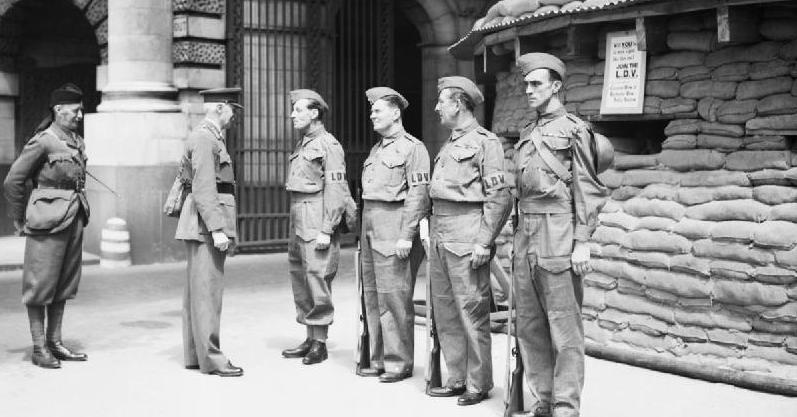Peter Blackburn – the 90-year-old, one of the last remaining member of the Pulham Market Home Guard, feels that today’s children are not at all interested in things that happened so long ago. Peter, who joined the British Home Guard at the age of just 17, would show them just what his life had been like – back then.
The war was in its early stages and troops were spread thinly over many fronts. Britain became increasingly concerned that the Germans were planning to invade their island. The situation seemed to be so critical that in early May of 1940, a call was put out for those citizens too young or too old to go to war (including those who were working in vital occupations such as farmers, coal miners, ship builders and others) to form Local Defence Volunteers (LDV).
The response was overwhelming – within the first day a quarter of a million men had signed up and by July, that number had risen to over one and a half million. Such tremendous response was welcome, but it caused logistical problems, and recruits had to wait for quite a while for uniforms and proper weaponry. By July of 1940, Churchill had decided that the LDV would be known as The Home Guards and had systems in place to alleviate many of the problems.
Peter, helping to run a family farm which was one of the essential industries, signed up as soon as he could, which was when he was just 17 . He was at once sent off for training which he reports was a serious business – not at all as shown in ‘Dad’s Army’. Since there were a number of WWI “sticklers” who had also joined the Home Guard – even when they were drilling, things had to be done properly. Peter found that having to do his farm work and then still train afterward was very tiring. However, since he loved shooting guns and since real machine guns were used at his first training session, he found Home Guards very exciting. He remembers that they were also trained in the use of bayonets and hand grenades, rifles and radios. He enjoyed that “there was a real sense of camaraderie and everyone was doing their bit for the war effort.”
The Home Guards were tasked to slow down the expected invading Nazis, so that the Allies would have time to re-group. Furthermore, they were used to protect places with a strategic value such as airbases, factories, farms as well as certain coastal areas. From its inception in May 1940, the home Guard was active until December of 1944, and at its peak had over 1700,000 members. Besides accidental deaths, the Home Guard lost more than 1200 members who were on duty, mostly as a result of air or rocket attacks.
People tend to be of the opinion that the Home Guard never used weapons against the enemy, but that is not so. Individuals attached to the Home Guards helped man anti-aircraft guns, they operated their own batteries of anti-aircraft guns and rockets, the Home Guards were involved in defense artillery and they also engaged German planes using their machine guns. The Home Guards were credited with the shooting down of numerous aircraft and they also shot down the flying V-1 bombs.
Peter Blackburn, like millions of others, was relieved when the war ended. Like many who remained at home, he had to come to terms with the knowledge that “a number of lads from the village went to war and didn’t come back. We only began to realize how dreadful it really was when it was over.”
Perhaps the best words in which Britain could express its obligation to those who “held the fort” back home appear in certificates awarded to servers in the Home Guard, which reads as follows:
“In the years when our Country was in mortal danger, (name) who served (dates) gave generously of his time and powers to make himself ready for her defense by force of arms and with his life if need be.
